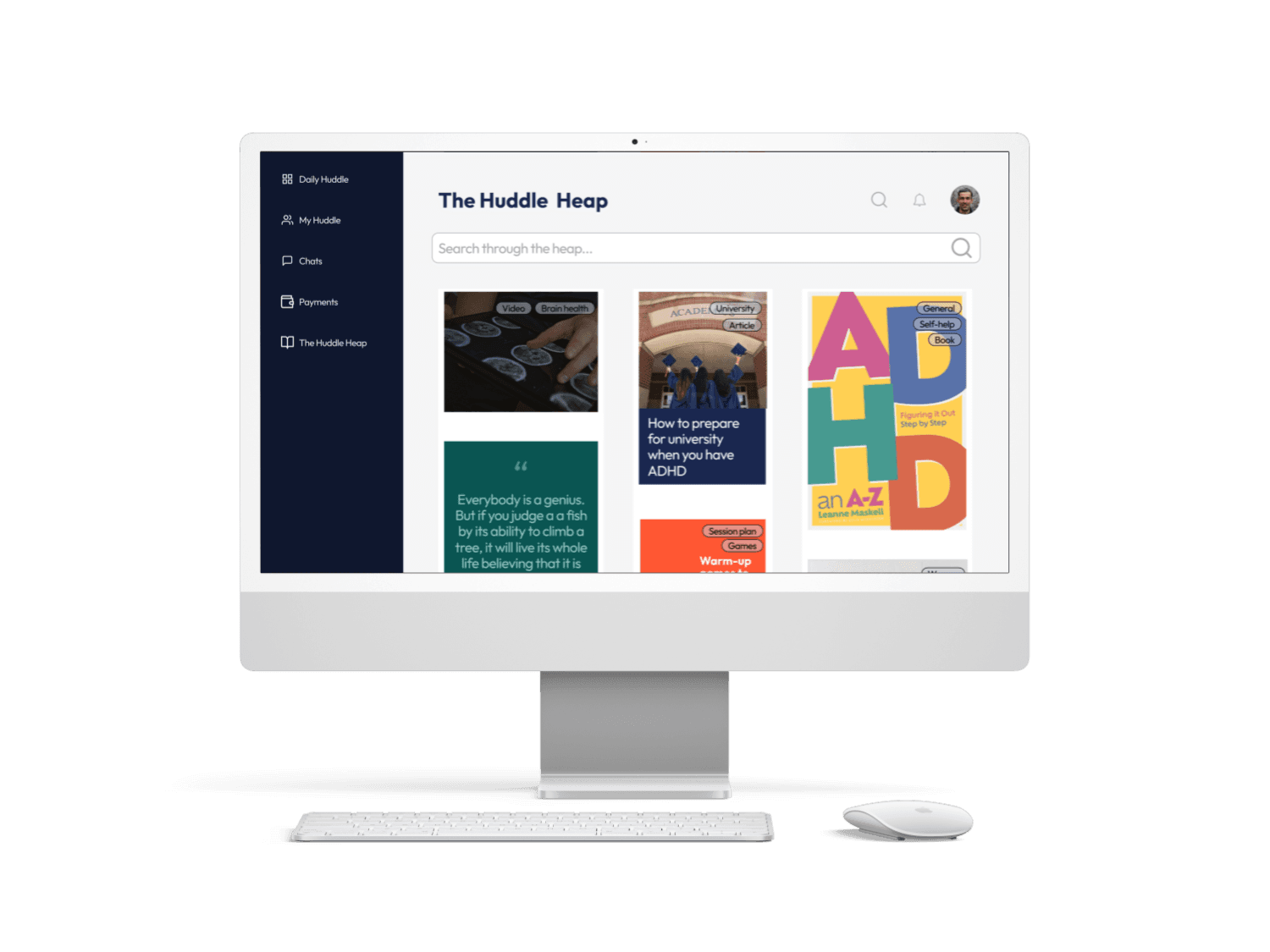
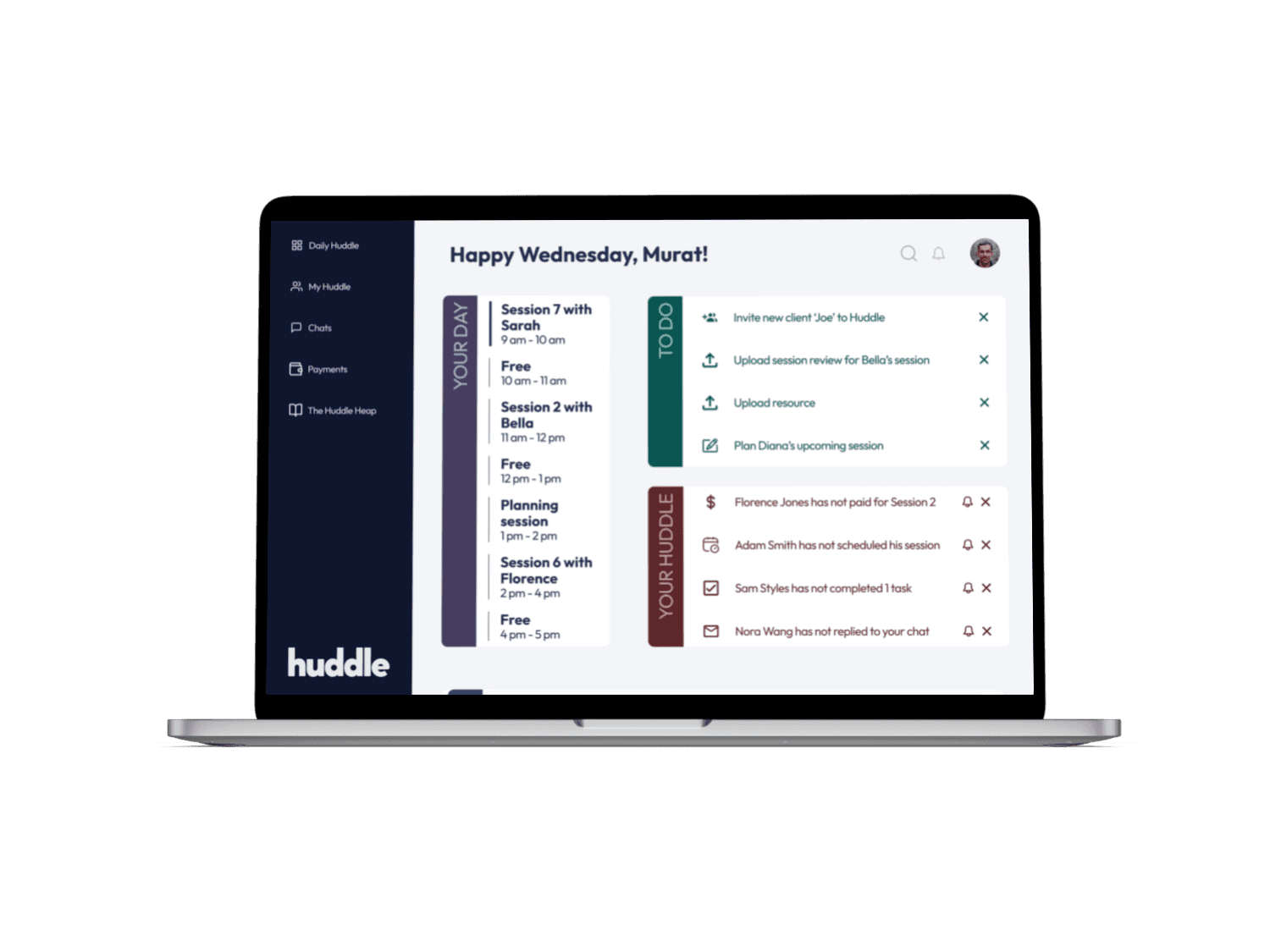
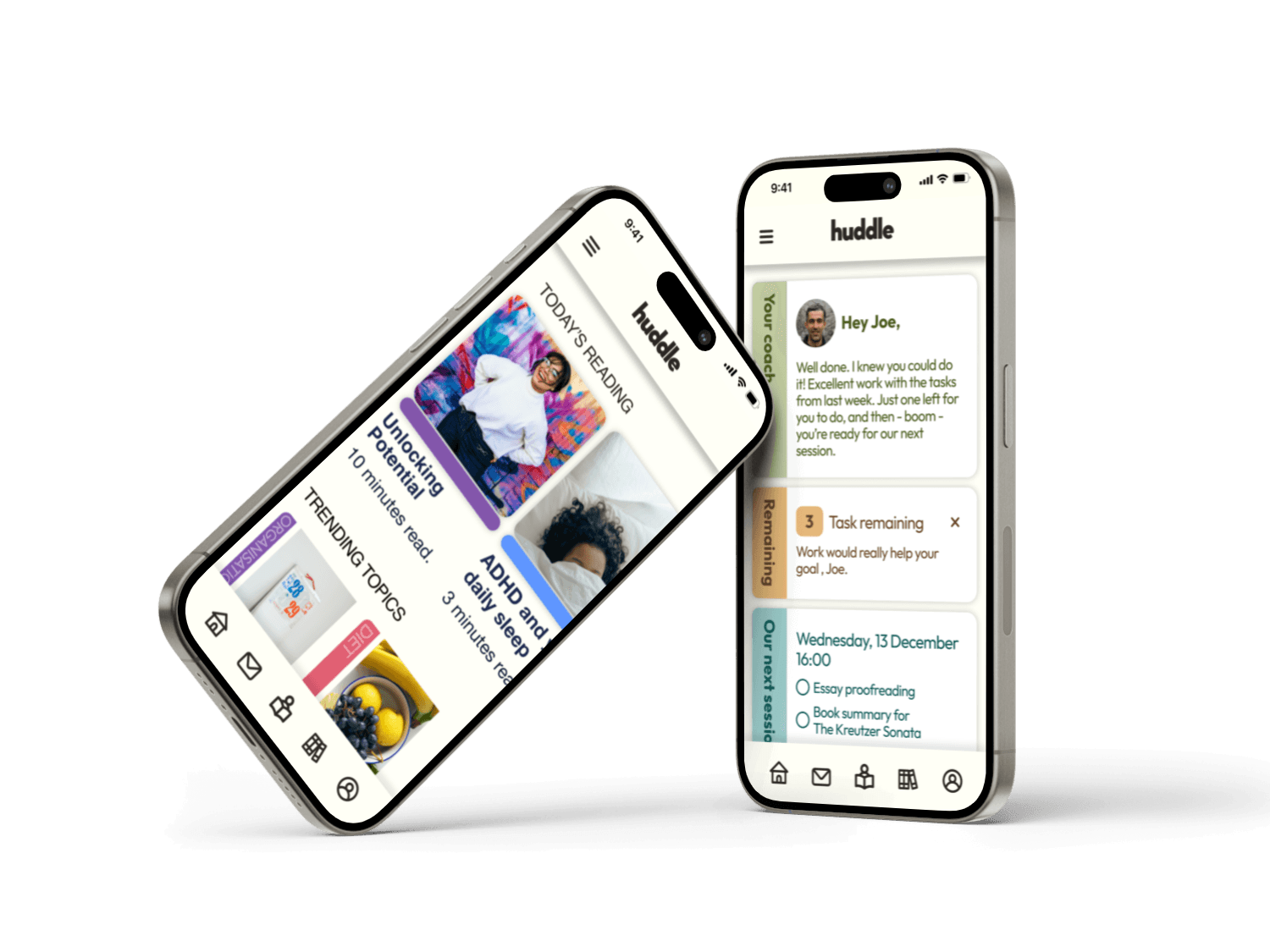
About the project
For this project we’ve been asked to create a digital product for an ADHD coach
who is looking to build a business for ADHD coach and their client.
We made some research about ADHD, coaches, and people with ADHD.
Later we’ve gathered insights and identified the problems that coaches
and clients were confronted to. We then designed a digital product that would answer their needs.
Role
Tools
Team
Time
UX Research, UX designer,
UI Designer
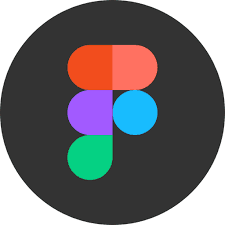
figma

figjam
3 persons
6 weeks sprint
OUR RESEARCH POINT OF INTEREST
ADHD coaches
How is ADHD coaching done ?
People seeking
ADHD coaching
What support do people with ADHD ask for ?
Potential roles of technology
What are the attitudes
of coaches & clients towards
technology


According to research studies people diagnosed with ADHD, we estimates that on average 3.4% have ADHD.
We also found that the prevalence in children aged 18 and under found an overall pooled estimate of 7.2%. Highlighting the improvement in diagnosis techniques.
It is likely that many adults have never been diagnosed with ADHD.
Survey
We circulated a survey in order
to get a better understanding of how people
experience ADHD and what do they use to help
in their daily life
60% were not using digital tools
to manage their life with ADHD
90% would consider using digital tool
to manage their life with ADHD
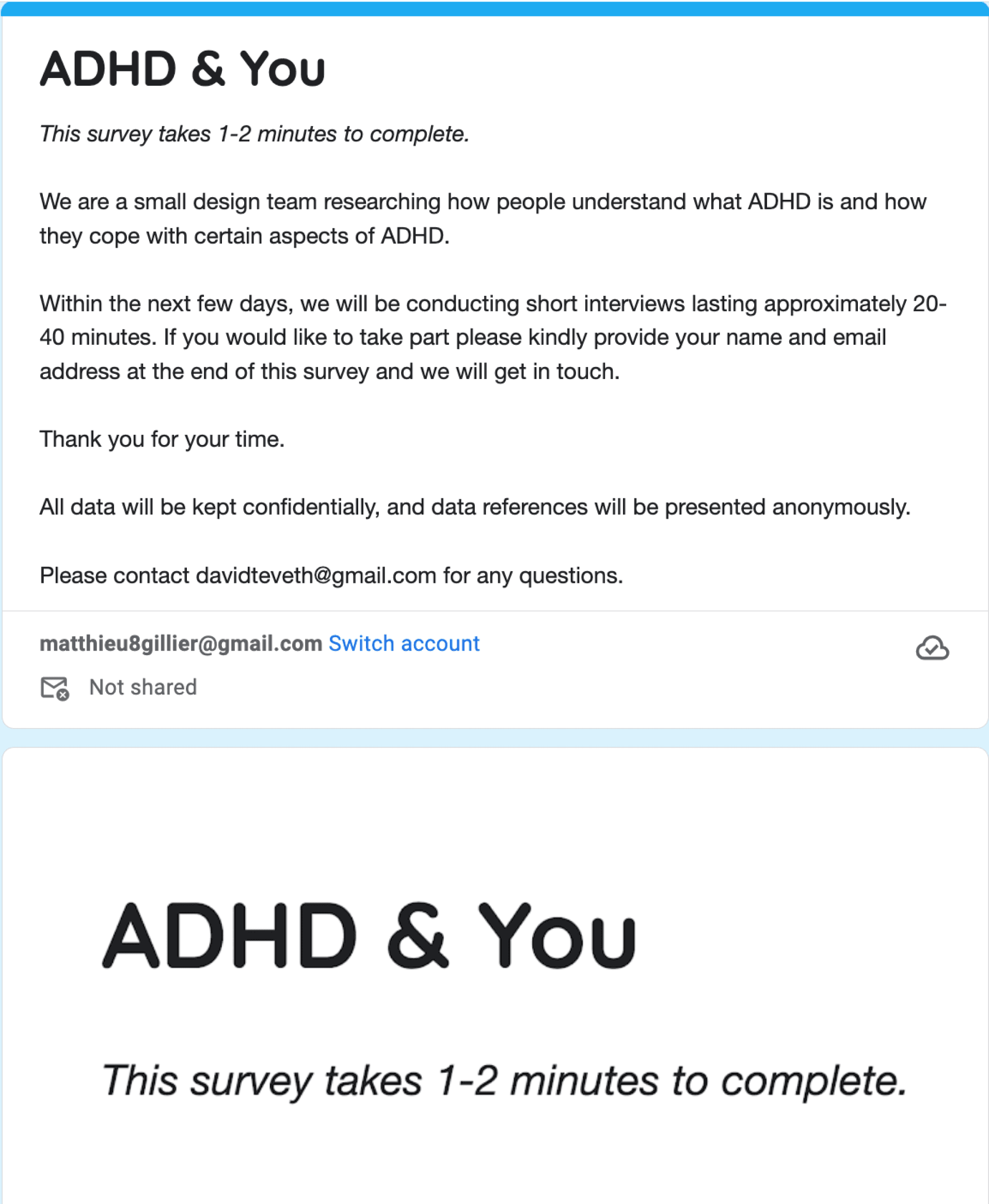
‘ADHD people are just people with brains that work a lot faster than other people.
I define it in positive terms rather than focusing on the negative attributes that come with ‘disorders’’
ADHD coach
ADHD coach offered a holistic approach to treatment
ADHD coach
I jump from productivity tools to another, none of them last
ADHD individual
‘ADHD is such an individualised disorder’
Psychologist
Following that, we conducted interviews with participants from our survey pool, including ADHD coaches, school teachers, SEND educators, parents, and individuals with ADHD.
Our interview lasted between 20-40 min
We asked question regarding their diagnosis,
the support they may receive,
their struggles and their needs.
We captured precious insight from the participants and it also helped us to get a better understanding of ADHD.
We gathered all our insights in an affinity map
and sort them in different categories :
Diagnosis
ADHD action
ADHD life
Support
Tools
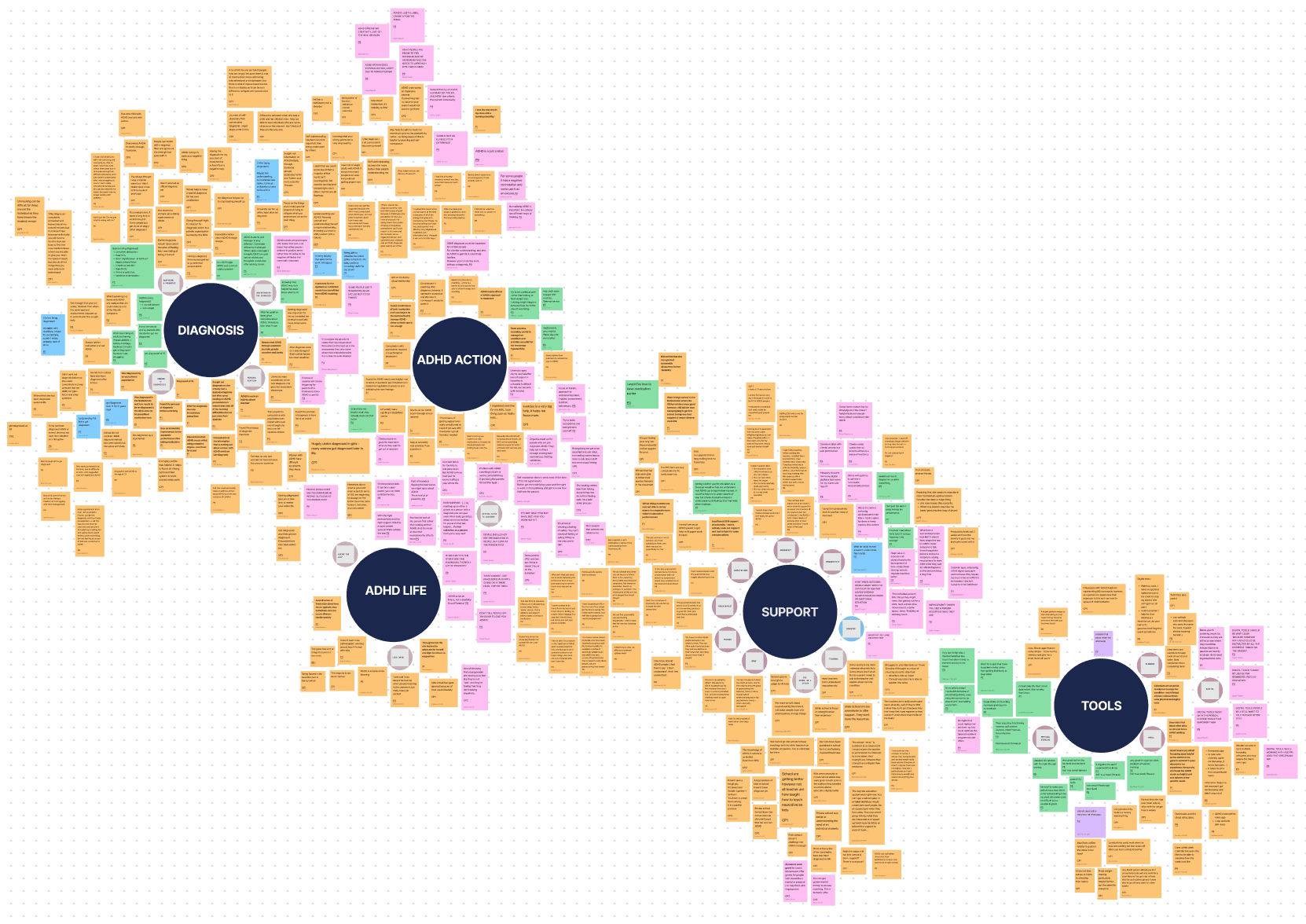
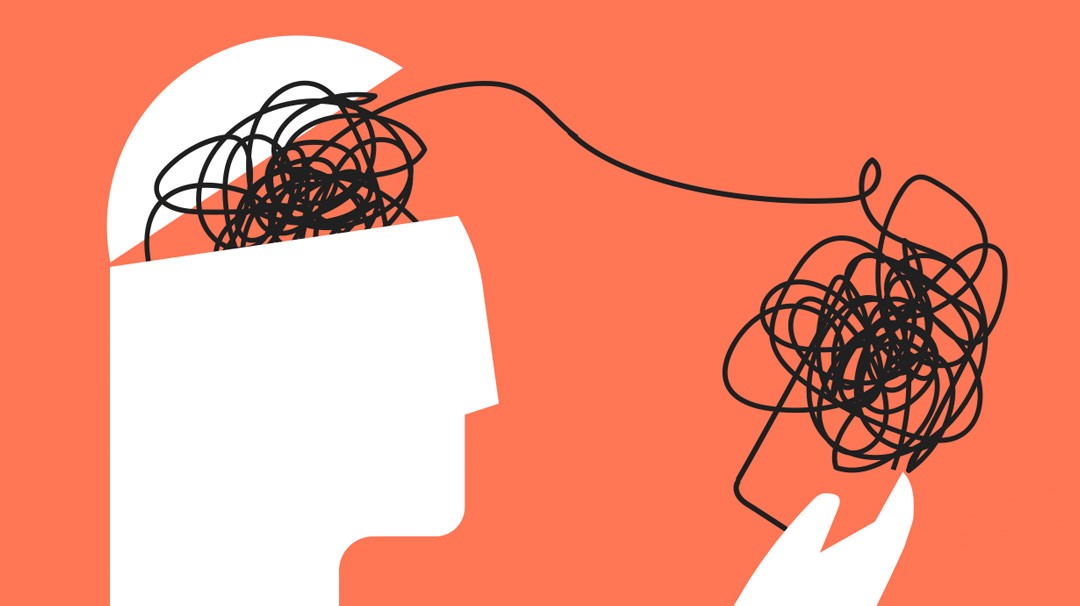
“Someone with ADHD could be distracted by all the different things on the gadget”.
~ADHD coach

“Any ADHD person will tell you that productivity tools will only work for a short time”.
~ADHD individual
Apart from reporting that mobile devices may cause distractions, both participant groups were sceptical that engagement with a digital tool would outlast users’ initial enthusiasm.

“ADHD isn’t a disability, it’s a difference”.
~ADHD individual
On account of their own difference,
people with ADHD often feel lonely.
Loneliness is also a major pain-point
between coaching sessions.

“Most cannot make sense of what’s going on in their head, they’re tired”.
~ADHD coach
The struggle to keep track of commitments and tasks often makes people with ADHD feel inadequate in comparison to neuro-typical people.
Competitors analysis
Company Name
Speechify
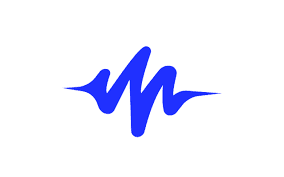
Forest

Pomodoro apps
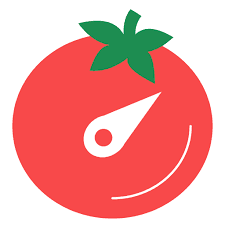
True coach

Coco thinks
and coco moves

Description
A gamified focus-enhancing app. Users plant trees when they have long periods where they are not distracted
A gamified focus-enhancing app. Users plant trees when they have long periods where they are not distracted
A digital software to allow coaches to grow their businesses. Key feature: accountability programme. Coach can set clients tasks that are to be completed at a certain time- the client will receive a notification reminding them of this and will have to prove to the coach that it has been completed
The Pomodoro Technique is a time management method based on 25-minute stretches of focused work broken by five-minute breaks. Longer breaks, typically 15 to 30 minutes, are taken after four consecutive work intervals. Each work interval is called a pomodoro, the Italian word for tomato
A brain-training game for kids
A gamified focus-enhancing app. Users plant trees when they have long periods where they are not distracted
Speechify is an auditory learning tool that can significantly benefit ADHD students by transforming written content into audio, allowing them to engage with material through listening rather than reading.
What device ?
Speechify
Mobile apps, chrome extension and desktop app
A gamified focus-enhancing app. Users plant trees when they have long periods where they are not distracted
A gamified focus-enhancing app. Users plant trees when they have long periods where they are not distracted
Mobile app, chrome extension
A gamified focus-enhancing app. Users plant trees when they have long periods where they are not distracted
A gamified focus-enhancing app. Users plant trees when they have long periods where they are not distracted
Mobile app
A gamified focus-enhancing app. Users plant trees when they have long periods where they are not distracted
A gamified focus-enhancing app. Users plant trees when they have long periods where they are not distracted
Mobile app
A gamified focus-enhancing app. Users plant trees when they have long periods where they are not distracted
A gamified focus-enhancing app. Users plant trees when they have long periods where they are not distracted
MOBILE/ TABLET APP
ADHD specific ?
NO
NO
no
NO
NO
Personalised/Generic
Personalised- you select what your goal with the app is, what you do for work or whether it is for personal use, age,
Generic, however, there is an onboarding personality test
NO
Personalised
Only restrict the user from opening unnecessary app
Free/paid?
Tiered payment
free for the basic features
Paid - by PT
PAID
£3.99
TArget audience
Working professionals/
Students
No specific audience
Tech savvy
Interested in games
Anyone
Adults
NEURODIVERGENT AND NEURTYPICAL CHILDREN
We conduced
a Competitor research
in order to :
Identify devices used
by competitors
Assess the services
provided
Investigate if any
competitors were
ADHD specific
Archetypes
The Coach

Name : Murat
Age : 42
Profession : ADHD coach
Spend less time scheduling sessions with clients.
Communicate freely with clients in a way that maintains the professional coach-client relationship whilst also appearing approachable.
Keep track of clients’ progress outside of sessions and remind them of tasks to be completed before their next sessions.
The Client

Name : Joe
Age : 22
Profession : Student
He is in his final year of university so has a lot of academic commitments and needs reminding of the tasks that his coach has set him.
He needs to feel as if he can contact his coach at any time so that he doesn’t feel isolated from support.
He needs to be reminded of sessions and have them automatically loaded into his calendar as he often forgets appointments.
In order to illustrate to the client
the current experience of coaching people with ADHD,
We etched a few story board.
We showcased the difficulties for ADHD individual and coaches. It highlight the fact that there is no support between session. The struggle of the coach
who has a chaotic system. They end up both feeling frustrated and that they don’t achieve much.




The current coaching experience
Coach schedules session
via email
Joe is busy and preoccupied so doesn’t put it in his calendar
Joe forgets about his session
Joe is running late
His coach feels frustrated that he is late
Joe is not prepared for his session
Both feel disappointed about how the session went
User flow

Mapping out the user flows was a crucial step in our project enabling us to define and concentrate on key features.
This phase provided us with a distinct understanding of the interaction dynamics between the coach and the client, guiding our development efforts and facilitating efficient task allocation.
Following the elaboration of the user flow, we discussed about the kind of platform our users will be using.
During our research we noticed that most coaches were using their desktop to manage their work.
We also made the assumption that for the client side it will be more accessible to offer a mobile version of the App given the fact that it will facilitate open communication.
We made the decision of designing the coach version on desktop and the client version on mobile.


On huddle coaches will be able to :
Have an overview of their activity
on the Dashboard ( upcoming meeting, payment received.. )
See their client list on the client page
Schedules session through a booking system.
Plan session for their clients and send reminders to them
Have access to a resource page
Get reminded of appointment and task to.
Send review to the client after each session
Clients will have the possibility to :
Fill a mood report
Have the possibility to chat to their coach if they need help between session
Consult the resource section made by their coach for them
Be reminder of appointment
Build their own profile and add all the information related to their ADHD
coach can build a tailored program for them
Being reminded of tasks to do between session
User flow

Mapping out the user flows was a crucial step in our project enabling us to define and concentrate on key features.
This phase provided us with a distinct understanding of the interaction dynamics between the coach and the client, guiding our development efforts and facilitating efficient task allocation.
Following the elaboration of the user flow, we discussed about the kind of platform our users will be using.
During our research we noticed that most coaches were using their desktop to manage their work.
We also made the assumption that for the client side it will be more accessible to offer a mobile version of the App given the fact that it will facilitate open communication.
We made the decision of designing the coach version on desktop and the client version on mobile.


On huddle coaches will be able to :
Have an overview of their activity
on the Dashboard ( upcoming meeting, payment received.. )
See their client list on the client page
Schedules session through a booking system.
Plan session for their clients and send reminders to them
Have access to a resource page
Get reminded of appointment and task to.
Send review to the client after each session
Clients will have the possibility to :
Fill a mood report
Have the possibility to chat to their coach if they need help between session
Consult the resource section made by their coach for them
Be reminder of appointment
Build their own profile and add all the information related to their ADHD
coach can build a tailored program for them
Being reminded of tasks to do between session
Wireframing

After a series of sketches and iteration, we came up up with our first versions.
We threw many ideas on paper, iterated many times. It clarified all the ideas that we had in mind and gave us a sense of scalability.





